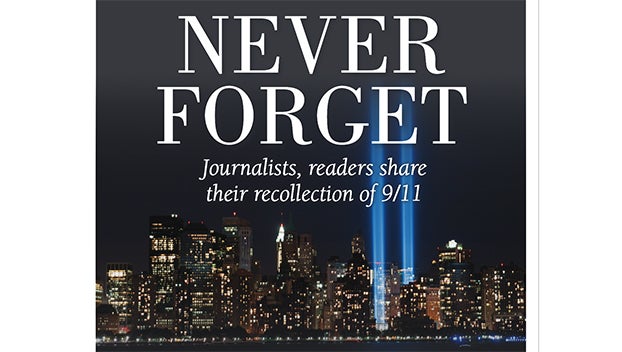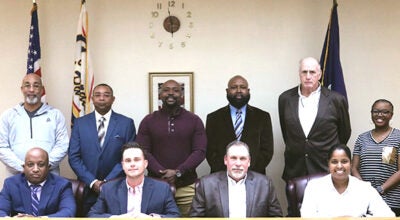Never Forget: Journalists share their recollection of Sept. 11, 2001
Published 6:00 am Saturday, September 11, 2021
|
Getting your Trinity Audio player ready...
|
NATCHEZ — Ben Hillyer said on the morning of Sept. 11, 2001, it had been a year since he started working at The Natchez Democrat as a staff photographer.
The day started just like any other. The sky was an incredible shade of blue and the first cool breeze of fall could be felt in the air. Hillyer was stopped at McDonalds for a coffee when he got a text message, or back then maybe it was a page. He couldn’t remember which, he said.
It didn’t say much, just that something was happening in New York and he needed to be alert.
He decided to take his meal home instead of dining in. He had only one television set in his house in a back room that was used as an office before his son Gibson was born.
He turned on the TV and saw the images forever etched in a generation’s minds. Billows of smoke surrounded the World Trade Center towers.
It took a moment for him to process what was happening, he said.
After that he got a phone call from the paper and the photo journalist in him asked, “how am I going to cover this?”
There was not much he could photograph in Natchez, “other than focusing on grief and stunned looks on people’s faces,” but there was certainly a sense of what was happening, Hillyer said.
He looked for evidence of what was happening in New York amid the quiet from the shock people were feeling. He’d decided to go to the Natchez Adams County Airport. Where the flight schedule on the wall had been full just a day before, Sept. 12 was blank. He also went to the Federal Express shipping dock in Natchez and found empty boxes where packages should’ve been loaded. No flights meant no packages were being shipped, he said.
He went to places like Copiah Lincoln Community College, Natchez High and Cathedral schools where staff and administrators planned prayer vigils.
“It wasn’t like New York, where there was chaos,” he said. Instead, happy chatter and hospitable greetings dissipated into a “stunned silence,” and “people were walking around with glazed looks on their faces. By the second day emotions came to the surface. Some people were angry and some were crying,” he said.
A lot of be people, Hillyer included, wondered, “what is going to happen next?” he said.
‘Can this be happening?’
Mark LaFrancis said he was teaching at Co-Lin in 2001 when the terrorist attack took place.
“I was at my house getting ready for the work, when my brother in California called and said I needed to turn on the television. I of course said I didn’t have time; I was getting ready for work and his response was ‘you have time for this.’”
As he watched the news, LaFrancis said it felt as though every fiber of his being sunk down to his feet and his heart stopped beating, for a while.
“I stood there not only in awe but in absolute terror, as many did,” he said. “I wanted to call everyone I knew, but didn’t want to call anybody. I wanted to get out and do something right away but at the same time I was frozen.”
As a writer, LaFrancis did take action. Soon after Sept. 11, 2001, the United States deployed soldiers to Afghanistan and a couple of years later to Iraq.
“I spent seven years interviewing soldiers in Iraq and Afghanistan,” he said. “I converted it into poetry. Close to 7,000 lost their lives in Iraq and Afghanistan and some are still losing their lives. I tried to use my skills as a writer to let them know there can be healing for those who serve.”
LaFrancis produced his “In Their Boots” series based on soldiers’ stories, which have been awarded numerous accolades by the State of Mississippi.
Shortly after 9/11, Co-Lin students gathered for prayer and reflection.
“We felt that it was best to have them come together rather than be anguished separately,” he said.
LaFrancis said the teachers and students had this “almost universal” feeling of, “’I can’t believe this’ and shock that something like this could happen to America. That shock lasted quite a few days among the student body and teachers.”
LaFrancis said he is still moved by the events that took place during and the years that followed 9/11 and the stories U.S. soldiers have shared.
“I never served in a war zone, but they have given me insight,” he said.






